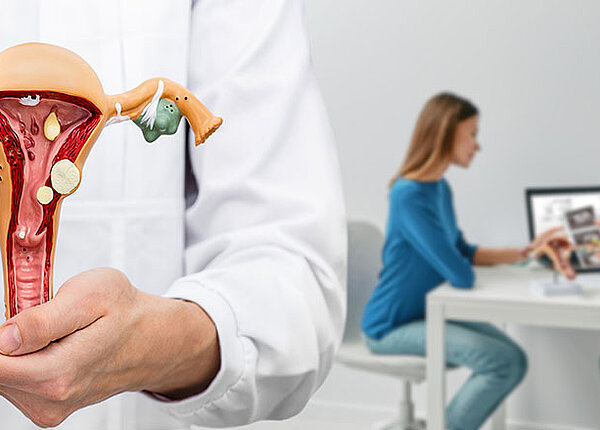English for PTA
A PREVALENT ILLNESS
Seite 1/1 3 Minuten
Worldwide, the incidences of younger people getting diabetes, especially type 2, are on the increase. Although hereditary factors do play a role in the occurrence of diabetes, lifestyle is the one major influence with overweight being the number one suspect in most cases. Regardless of which factor or factors are the cause, early recognition is essential in dealing effectively with the disorder.
Male pharmacy customer: Hello.
PTA: Hello. How may I help you?
A friend of mine told me that you do blood tests free-of-charge.
Yes, we do. This month we are having a diabetes awareness action. Do you suspect that you may have diabetes?
Having spoken to my friend, yes, I’m afraid that I might. Which is why I’m here!
Yes, right. So, if you could follow me please. We carry out the test in our back office. It’s comfortable and more private for the customers. Please, wash your hands in warm water here in the wash basin. Apparently, it helps the blood flow better.
Okay!
Very good. The device that we use is quite accurate but can’t replace a full examination by your doctor. This is only going to hurt a little. I need to prick your finger-tip with this disposable lancet for a little drop of blood. Please, take a seat.
Okay.
(Carries out the test) There you are! That didn’t hurt, did it?
No, not really.
So, let’s see. Mm! Your blood-sugar level is a little high.
Little high, how high?
Well, it’s according to this it’s 112mg/dl. Have you had anything to eat this morning? This would affect the reading.
No, I especially didn’t have any breakfast as my friend said I need to fast to make sure that the blood-sugar test is realistic.
Are there any other things, you noticed at yourself in recent weeks?
Such as?
Oh, there’s a whole list of symptoms such as frequent urination, increased thirst, extreme hunger, fatigue, and frequent infections especially the gums and skin. There are others, but they’re the main ones.
Certainly, I am thirsty, but I think it’s because of the weather. And sometimes I’m tired, but I have to work very much.
Okay! Well, it’s good that you took your friend’s advice and came to us. Only your doctor can truly establish if you have diabetes or not. There are other tests such a glucose tolerance tests, and various blood and urine tests that need to be done.
Diabetes! That’s the last thing I need!
Oh! Don’t worry too much! Treatment for diabetes has never been better. And the fact that you are probably at an early stage of the disorder, means that you may just need to change your lifestyle and nutritional habits. I’d wait and see what the test results tell you before starting to worry.
Thank you, you have been very patient and helpful and I am glad that I came here!
No, problem! Make sure to make an appointment with your doctor as soon as possible. Goodbye!
Goodbye! Thanks again!
Vocabulary
Prevalent weit verbreitet
incidences Vorkommen
hereditary angeboren, vererbbar
occurence Auftreten, Häufigkeit
regardless of ungeachtet
early recognition Früherkennung
disorder Erkrankung
awareness action Aufklärungsaktion
device Gerät
replace ersetzen
prick pieksen
disposable Einweg-
recent kürzlich
fatigue Müdigkeit, Ermattung
gums Zahnfleisch
establish feststellen
early stages im Frühstadium
nutritional habits Ernährungsgewohnheiten
Den Artikel finden Sie auch in Die PTA IN DER APOTHEKE 07/13 auf Seite 82.
Catherine Croghan, Lecturer in English and native speaker












